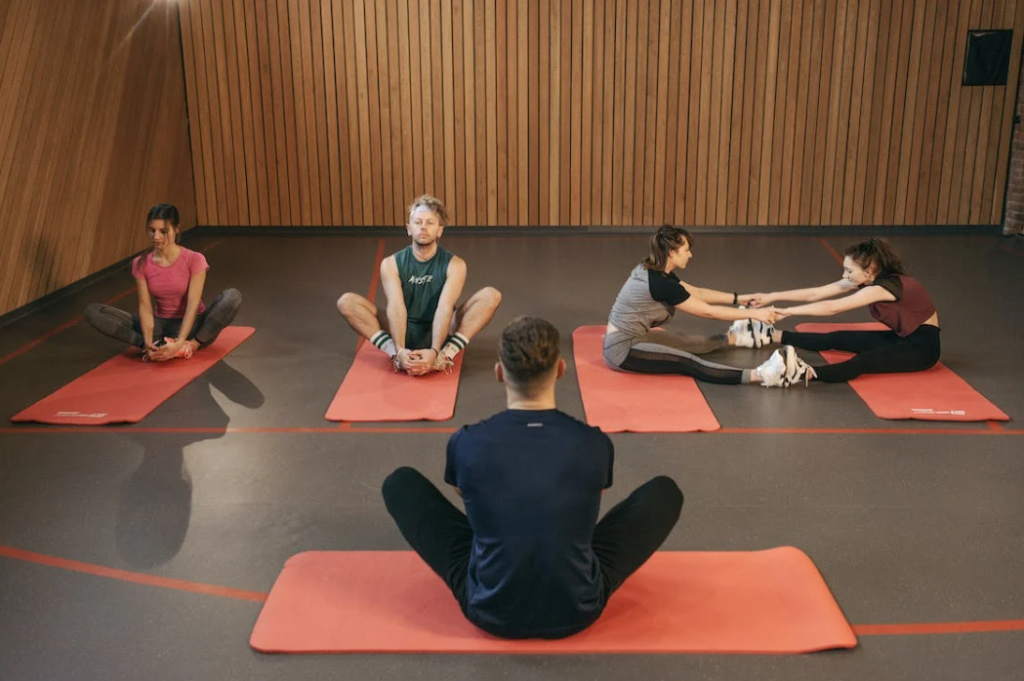Meditation to Fall Asleep
Learn how meditation can help you fall asleep faster and stay asleep longer.

Selfpause Affirmation App
Download the app to get 1,000’s of affirmation meditations and everything you need to write, record and listen to your own.
Many people experience problems getting to sleep, and meditating to fall asleep may be the answer. It helps the body shut down and transition to a restful state. This can be especially beneficial for people who have trouble falling asleep, or for those who suffer from sleep apnea. In fact, meditating to fall asleep can help you fall asleep faster and remain asleep longer.
Guided meditation

Guided meditation to sleep is a practice that has been proven to improve your sleep and daytime mood. It involves listening to a relaxing voice to calm the mind before bed. This technique can also improve your immune system. Despite the many benefits of meditation, it can be difficult for some people to get a good night’s sleep, especially those who are suffering from anxiety or insomnia. The good news is that there are many methods available to help you fall asleep.
One of the most popular methods is guided meditation. The person who guides you through a meditation routine usually focuses on a specific aspect of the body while you sit comfortably in bed. The purpose of guided meditation is to train your mind to calm your mind, let go of distracting thoughts, and relax. The voice may even help you visualize something in your mind.
Guided meditation to sleep helps you relax by reducing the impact of your worrying thoughts and body tension on your sleep. This practice helps you fall asleep and stay asleep. It helps you focus on the present moment and avoid ruminating about the day’s events. However, this meditation can be challenging for some people because their minds are often preoccupied with the thoughts that they suppress during the day.
Mindfulness

Meditation to sleep with mindfulness can help people get a good night’s rest. The technique promotes nonjudgmental awareness, curiosity, and openness, all of which can help with sleep. It is also relatively safe and fun. Meditation is a proven technique for reducing stress and improving sleep.
One benefit of meditation to sleep with mindfulness is that it triggers the relaxation response in the brain. This helps ease stress-related ailments such as insomnia and other types of anxiety. The practice involves bringing the mind to the present moment by focusing on the breath. It also breaks the train of thought that is common in everyday life.
To begin practicing meditation to sleep with mindfulness, you need to set a time and place for the meditation. It is best to begin a few minutes before bedtime and gradually increase the time to fifteen or twenty minutes. Try to focus on the present moment as much as possible. Avoid any distractions and make sure you’re in a comfortable position.
Body scan

If you are looking for a simple way to relax before bed, body scan meditation might be just what you’re looking for. This meditation is a form of mindfulness that does not require the meditator to perform any specific action. It simply requires the user to focus on various parts of their body while clenching and relaxing their muscles.
This type of meditation is relaxing and may help you fall and stay asleep much easier. In fact, a 2019 review found that regular body scan meditation may be especially helpful for people suffering from insomnia. In addition to allowing people to feel more relaxed, it also helps them release the worries that keep them awake.
Another benefit of body scan meditation is that it can be performed anytime during the day. This makes it a practical tool for many people. People can practice it before bed or during their break at work. Some people even use it as a pre-meditation exercise before a yoga session. Nonetheless, the benefits of this meditation practice are greatest when performed before bedtime.
Yoga Nidra

Yoga Nidra for meditation to sleep is a technique that guides participants through four brain wave stages. The goal is to achieve a hypnagogic state, a time between wakefulness and sleep that is ideal for meditation. The technique also promotes mental alertness and helps to stabilize blood sugar levels. In addition, it is beneficial for combating depression, anxiety, and PTSD.
Prior research on Yoga Nidra focused on experienced yoga practitioners, but emerging evidence suggests that first-time participants can achieve similar results. The prevalence of insomnia and anxiety among U.S. adults is estimated at 30 to 50%, and insomnia and related anxiety disorders are contributing factors in increased mortality from heart disease and depression.
The practice of Yoga Nidra for meditation to sleep is an excellent way to combat these problems. During a guided session, practitioners can achieve deep relaxation, deep mental peace, and higher awareness. As a form of meditation, Yoga Nidra for meditation to sleep has been practiced for thousands of years and has a variety of benefits.
Our Top FAQ's
Some meditation techniques that can be helpful for falling asleep include focusing on the breath, progressive muscle relaxation, and guided imagery. Other techniques that may be helpful include repeating a mantra or affirmations, body scan meditation, or visualization. Experiment with different techniques to see what works best for you.
Meditation can be a useful tool for promoting relaxation and improving sleep, and it may be helpful as an alternative to sleep medication for some people. However, it’s important to consult with a healthcare professional if you are considering using meditation as a replacement for medication, as they can help you determine the best course of treatment for your individual needs.
It is normal to feel anxious or restless while meditating, especially if you are new to the practice or have a lot of racing thoughts. These feelings are natural and can be addressed by staying present with your breath and being patient with yourself. It may take some time and practice to feel the benefits of meditation, so be kind to yourself and don’t get discouraged if you don’t experience immediate results.
The length of time you should meditate before bedtime will depend on your individual needs and preferences. Some people find that a shorter, 10-15 minute meditation is sufficient, while others may benefit from a longer session of 30-45 minutes. Experiment with different lengths of time to see what works best for you.
Regular meditation can improve sleep quality over time by reducing stress and promoting relaxation. It can also help to regulate the body’s natural sleep-wake cycle and improve overall well-being. It’s important to keep in mind that the effects of meditation may not be immediate, and it may take some time and consistent practice to experience the full benefits.
